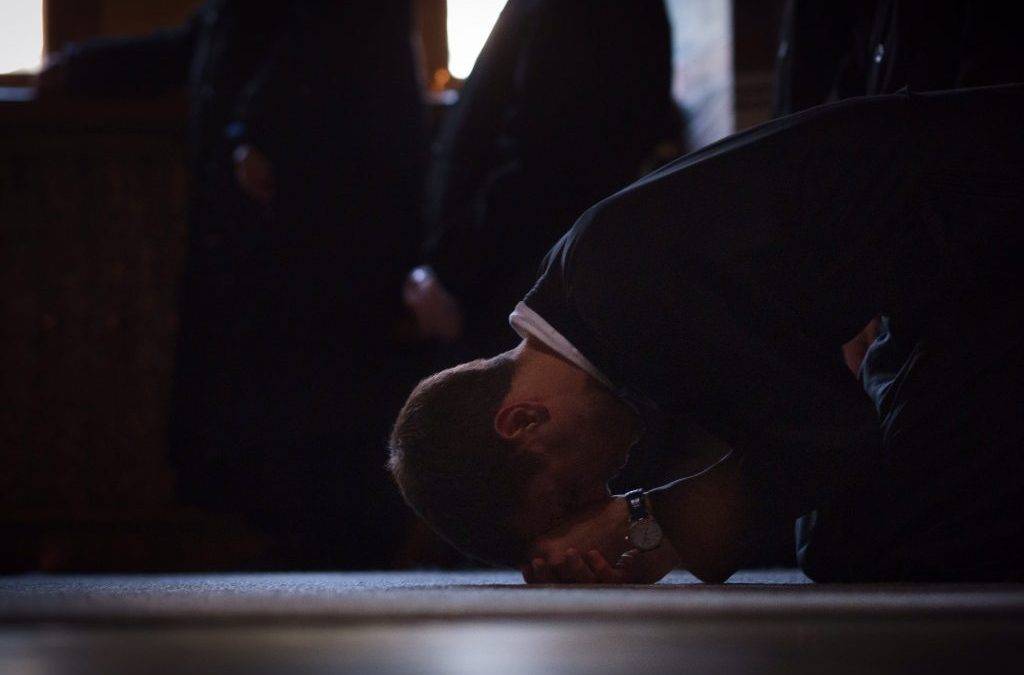
Metropolitan Amfilohije on the Lenten prayer "Lord and Ruler of my life"
Of all the wonderful hymns and prayers during the Holy Forties, Holy and Great Lent, the richest period of church worship during the year, one short prayer can be designated as the Prayer of Lent. It is about the prayer of St. Ephraim the Syrian, the great and wonderful Holy Father of the Church of God:
Lord and Ruler of my life, do not give me the spirit of laziness, sullenness, love of power and idle talk.
Give me, Your servant, the spirit of wisdom, calmness, patience and love.
Oh, Lord King, grant me to see my sins, and not to judge my brother, because you are blessed forever and ever. Amen.
Metropolitan Amfilohije, having blessed the beginning, says that in this Lenten prayer "Lord and Ruler of my life" all the Christian nature is contained, what we call ethics, man is contained as he is, sinful, he confesses and acknowledges the condition that endangers his human being, his human image , and, at the same time, he is given and reveals the path he should follow in order to become a true man.
We convey the interpretation of the prayer "Lord and bishop of my life" which Metropolitan Amfilohije said in the sermon at the evening service in the Cetinje monastery on Prayer Sunday, and which was published in the 269th issue of the "Svetigora" book of religion, culture and education.
Lord and Ruler of my life - we confess Him as our Lord and Ruler of our life, don't give me the spirit of laziness, laziness, love of power and idle talk. Laziness and laziness are what poisons a man and his life the most, and according to modern psychiatrists, it is the basic disease of modern man. For example, Frankl, the famous psychiatrist from Vienna, understood and saw how much the so-called sadness, now it's called depression, poisoned people. This sadness appears precisely because a person somewhere in the depths of his being does not have true and real joy, and he does not have that joy until he believes in the Living God, and until he enriches that faith with his works and his efforts and the spirit of his repentance. Until he overcomes lameness, until he overcomes little faith, superstition and every false ideology that poisons him, and until he overcomes the lust of the eyes, the lust of the body and the pride of life, which are the root of man's alienation from God. Liberation from them, precisely through repentance, is a return to what the Holy Fathers call joyous sorrow. Sadness is in human nature. But there is a sadness that kills, that gives birth to death-sadness with which the modern deified world is poisoned, and there is also a joyous sadness - sadness for God, sadness for Christ, sadness for salvation, sadness for the living image of the Living God. Then we pray that he will not give us the wicked spirit of tyranny, the spirit of pride, and then also the spirit of idle talk - a vain human life. Because it was not accidentally said that we will give an answer at the Last Judgment for every empty word, for every empty thought. Both thought and word and everything that is created in man is not to remain empty, but to be filled. Everything depends on what we will fill our heart and our mind and our soul with; a man's life depends on it.
Therefore, after this first and basic request, we also say the second part of this prayer: Give me the Spirit of wisdom, calm mind, patience and love. Prudence is common sense. It is the wholeness of man, the unity of his soul and body, unification, as God created them uniquely. Thus, a person must not leave his heart, mind, soul, or body to the empty, empty, sinful, God-alienating, but should gather himself with a sound mind and go on the path not of pride, not arrogance, but on the path of wisdom, humility and patience. From a true calm mind is born true patience. In the Gospel it is not said: "who suffers", but: "who endures to the end". That is true patience, so we call it longsuffering. This is Christ's patience: "Glory to Your long-suffering, Lord." He suffered whippings, suffering and torture, and he suffered crucifixion and death, remaining faithful to his Father and obedient until death on the Cross. And that patience is what we pray for. Only from such and such patience, such a calm and sound mind and such all-wiseness is born true and genuine, selfless love. A love that does not seek its own, that is not proud, a love that is Christlike, that is God-like, the kind of love that God showed through Christ, His Only Begotten Son to this world and called us to this and that kind of love, to be filled with it .
What is very important and what is essential in the Holy Gospel, and then also in this prayer expressed entirely in the spirit of the Gospel, is the request: Yes, Lord King, grant me to be aware of my sins and not to judge my neighbor. This is where we are the weakest - all of us are constantly judging, judging others. The less a person is aware of himself and his weaknesses and infirmities, his imperfection, his sinfulness, his spiritual darkness, the more ready he is to see this darkness and sins in other people. The more aware a person is of himself, the more distant he is from the judgment of others. "Judge not lest you be judged", "With what measure you measure, it will be measured to you" - all this is what the Church of God calls us to do in our entire Christian life, and especially encourages us to do so precisely in this great and to holy fasting, to such and such virtues, to such and such work which is baptized precisely with the spirit of repentance, the spirit of continuous effort to change, and continuous service, with all your mind, heart and soul, to the living Lord.
As we say in that litany at the Liturgy: "Let us surrender ourselves and each other and our whole life to Christ God." That is the meaning of this Great Fast, and may the Lord make us worthy to fast physically, and to fast spiritually, with abstinence, so that the face of God will truly shine on us; so that we can truly become children of light from children of darkness. We Christians are called to this, so that the light of our face shines before people, so that people, seeing our good deeds and the light that shines from us, glorify our Father who is in heaven, to whom be glory and praise forever and ever. Amen.
Metropolis of Montenegrin and Littoral
PHOTOS
RELATED ARTICLES
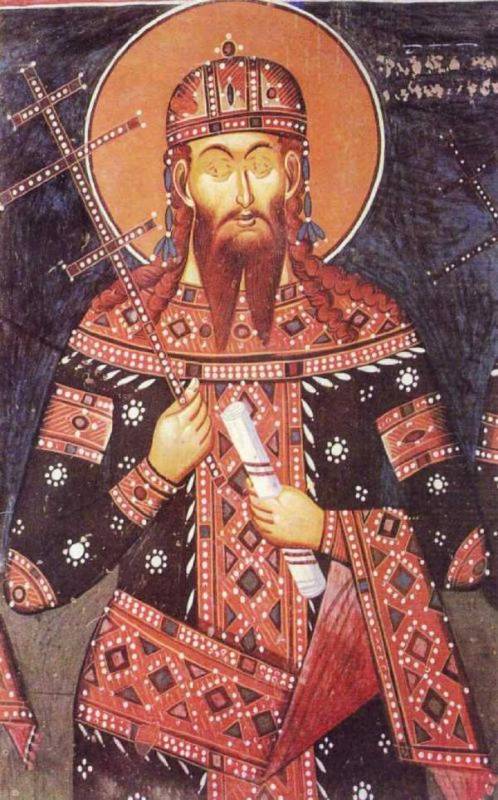
Calendar for December 15 Saint Emperor Uroš
The only son of the Serbian Emperor Dušan and Empress Jelena, sister of...
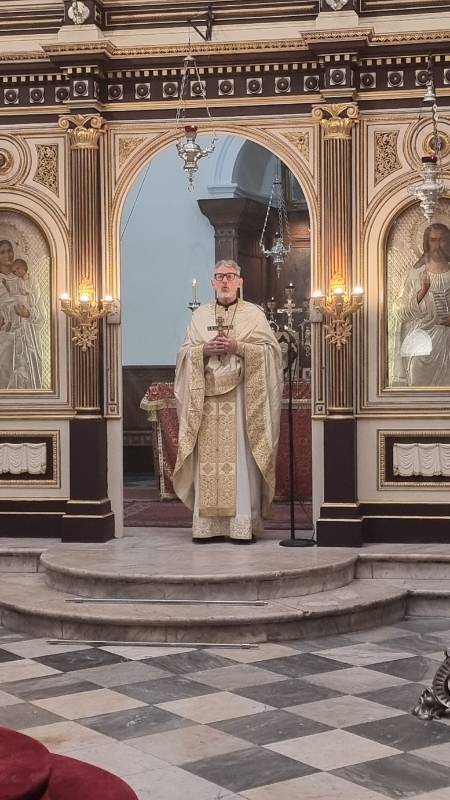
FATHER NEMANJA KRIVOKAPIC: BY PUTTING FORM ABOVE ESSENCE, ALL BECAME HYPOCRITES SIMILAR...
“Whenever we think about the miracles performed by the Lord, such as the...
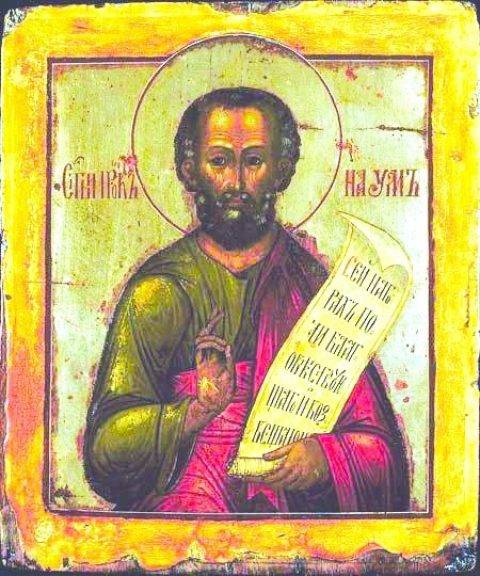
Calendar for December 14 Saint Prophet Nahum
A native of the town of Elkosh, across the Jordan, from the tribe of Simeon. He...


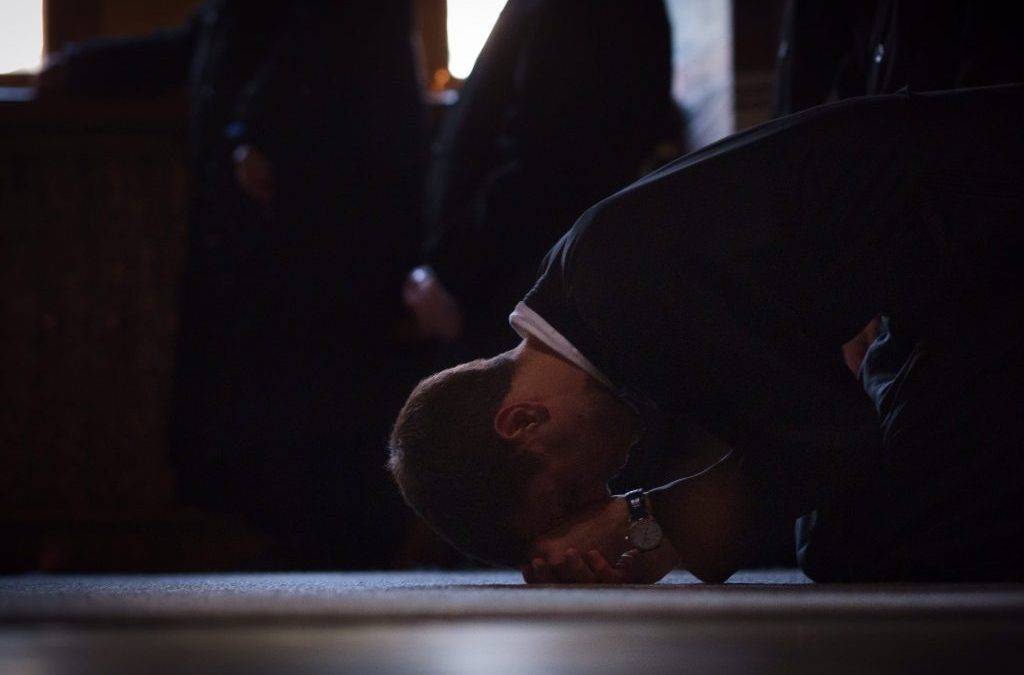

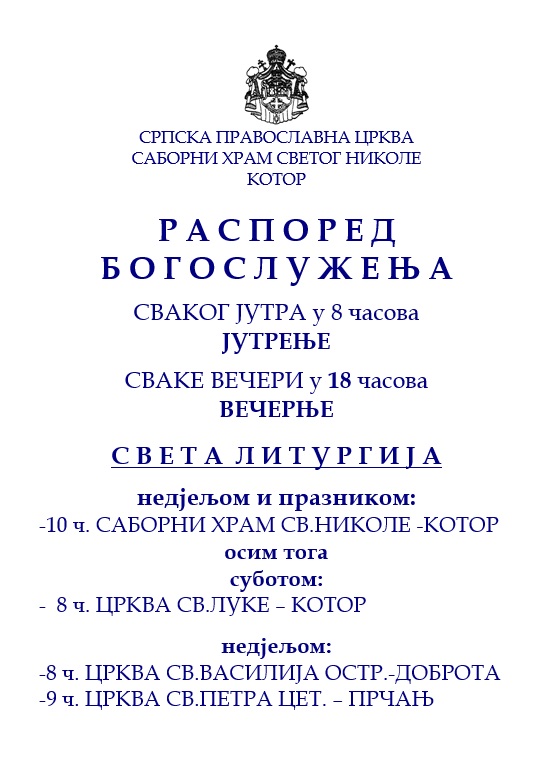
.png)